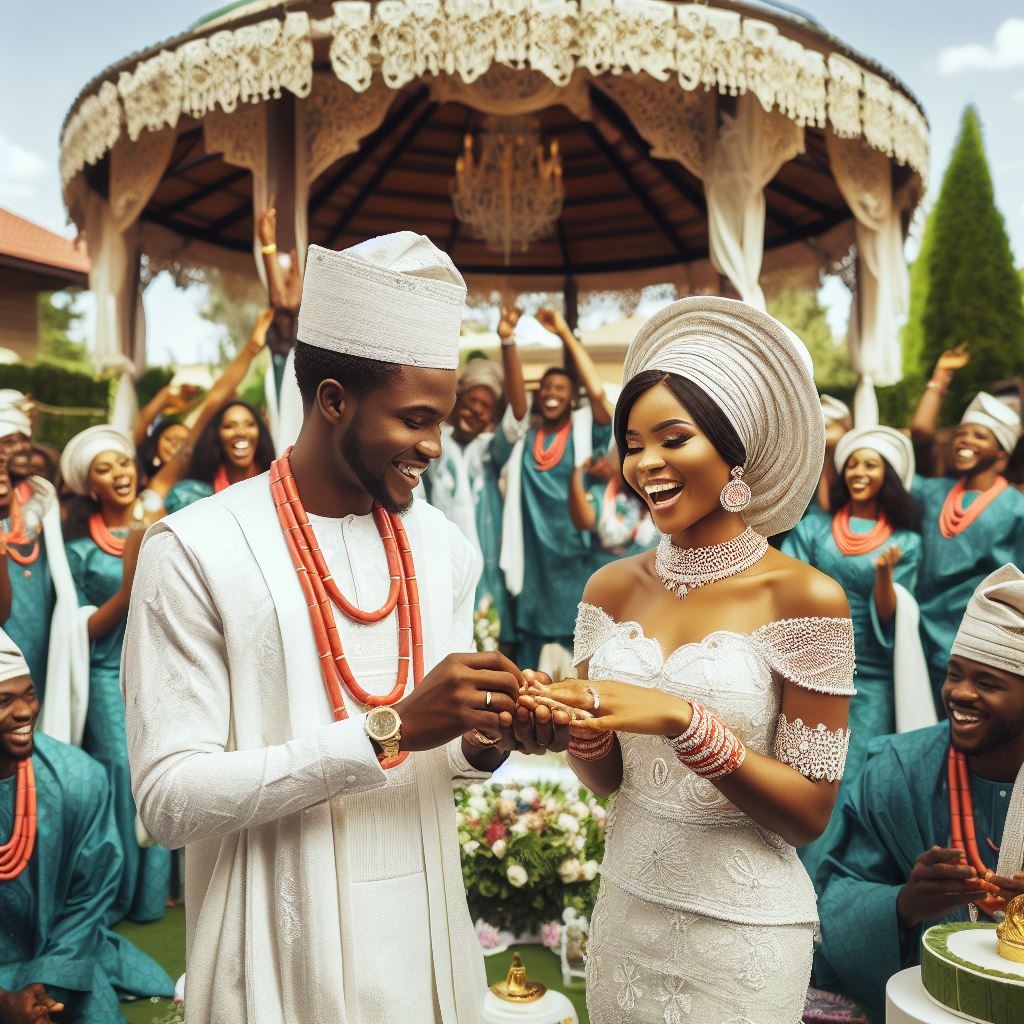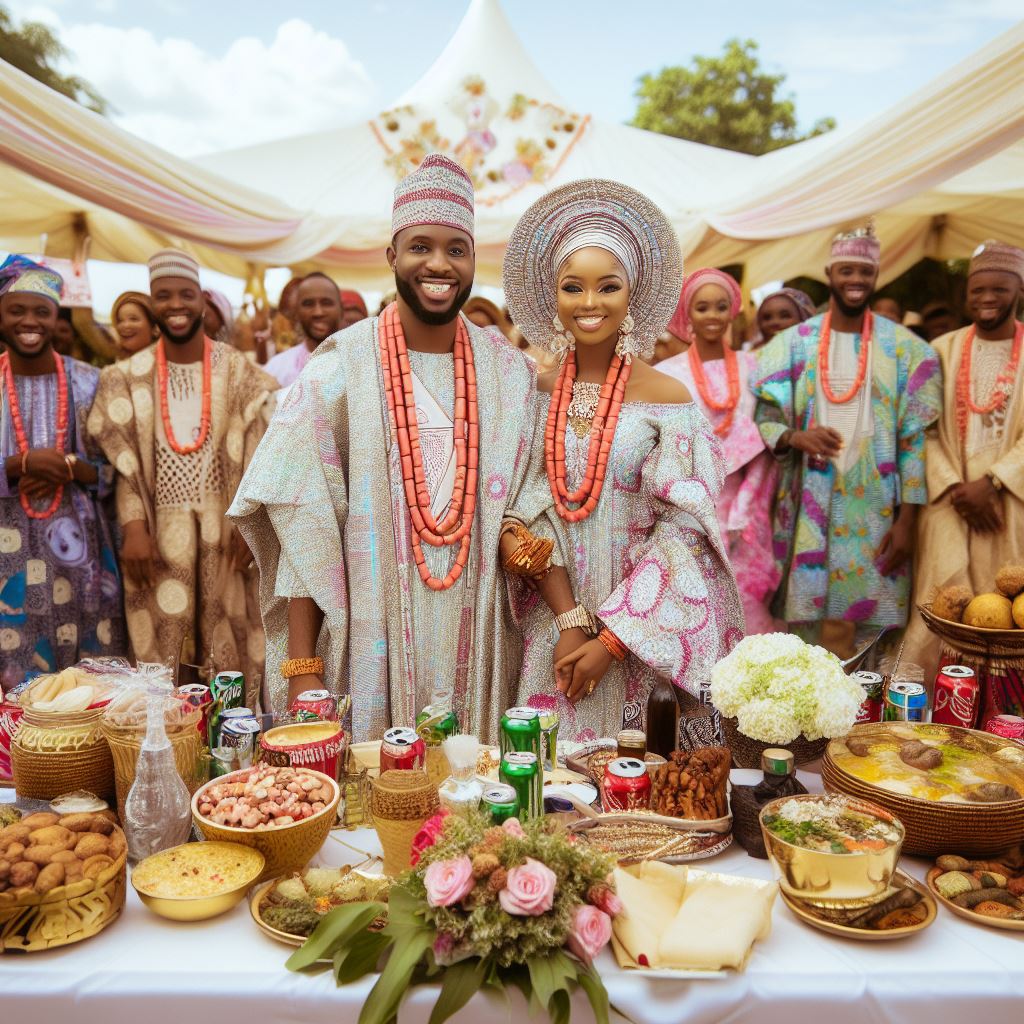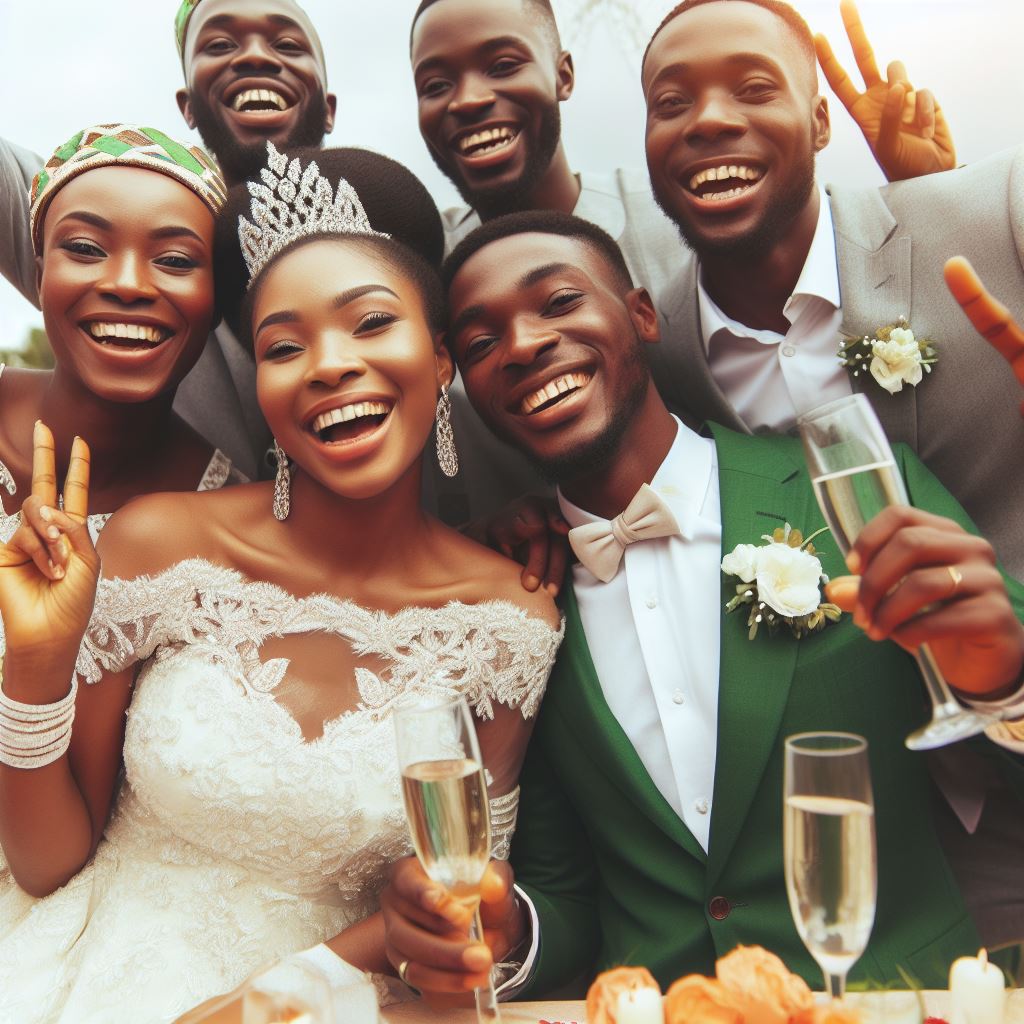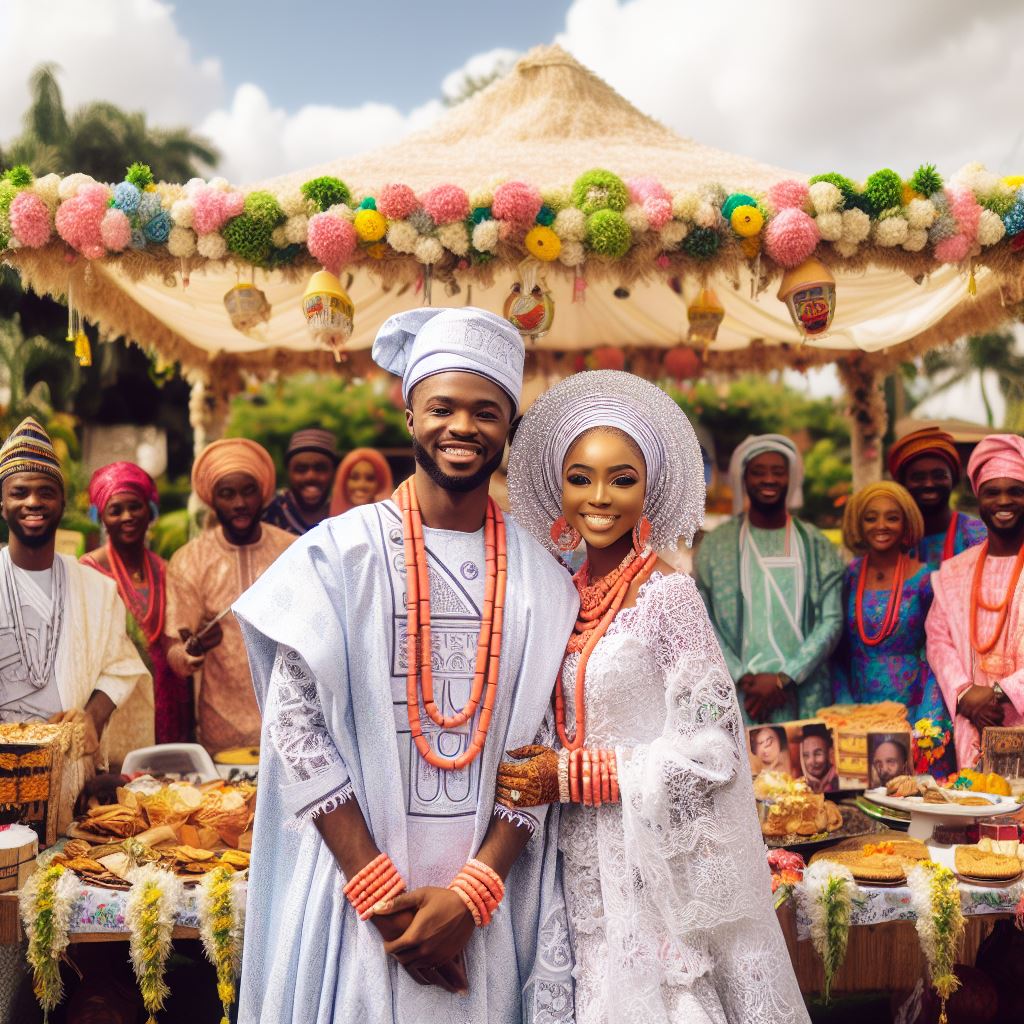Introduction
Marriage in Nigeria is a multifaceted institution, far more than just a union between two individuals. “Nigeria View on Marriage” is what we will discuss in this article.
It encompasses a blending of families, cultures, and traditions, signifying unity beyond the couple.
Importance of marriage in Nigerian culture
- Marriage holds immense importance in Nigerian culture, serving as a cornerstone of society and deeply ingrained tradition.
- It is a reflection of family values, bringing together not just two individuals but two extended families.
- Marriage is a sacred covenant, often with religious undertones, symbolizing commitment, faith, and divine blessings.
- In Nigerian culture, marriage is a pivotal rite of passage, signifying maturity and societal acceptance.
- It strengthens social bonds, creating interconnected networks of support and cooperation, fostering unity in the community.
It is a celebration of family, community, and tradition, reflecting the rich tapestry of Nigerian society.
Read: From First to Fiftieth: Nigerian Anniversary Milestones
Traditional Nigerian Marriage Practices
Types of marriages in Nigeria
Nigeria recognizes both monogamous and polygamous marriages. Monogamous marriages, where a man and a woman come together, are widely prevalent and legally recognized.
On the other hand, polygamous marriages, where a man has multiple wives, also exist and are accepted within certain cultural contexts.
Pre-marital customs and rituals
The journey towards marriage in Nigeria begins with the introduction of families.
The families of the prospective bride and groom meet to establish a connection and discuss the union. Bride price negotiations, a significant aspect of Nigerian marriages, follow the introduction.
This negotiation entails the groom’s family offering gifts or money to the bride’s family as a token of appreciation.
Once the bride price negotiation is concluded, a traditional engagement ceremony takes place.
This ceremony marks the official agreement between the families and symbolizes the upcoming union. It is a joyous occasion celebrated with family, friends, and the community.
Wedding ceremonies and celebrations
Traditional Nigerian weddings are vibrant and exuberant affairs.
Traditional wedding attire
The couple adorns themselves in beautiful traditional wedding attire, reflecting their cultural heritage.
The bride often wears a stunning gele (headscarf) and a matching iro and buba (wrapper and blouse), while the groom wears traditional agbada or babariga.
Traditional wedding rituals
The wedding is not just about exchanging vows; it also includes an array of traditional rituals.
These rituals may vary depending on the ethnic group and region but generally involve blessings, prayers, and the pouring of libations.
They serve to unify the couple and seek the blessings of ancestors and gods for a fruitful and harmonious union.
Festivities and cultural performances
Moreover, Nigerian weddings feature lively festivities and cultural performances, including colorful dances, drumming, and singing.
Entertain guests with traditional music, captivating storytelling, and cultural displays, creating a joyful, communal atmosphere.
In general, traditional Nigerian marriages go beyond a simple union between two individuals.
They embrace centuries-old customs, rituals, and celebrations that reflect the rich cultural heritage of the country.
Whether it’s the introduction of families, bride price negotiations, traditional engagement ceremonies, or vibrant wedding festivities, each element adds depth and meaning to the institution of marriage in Nigeria.
It is a celebration of love, family, and community, reaffirming the importance of cultural identity and bonds.
Read: Incorporating Folktales in Your Nigerian Anniversary Note
Marriage as a Social Institution
Marriage as a cornerstone of Nigerian society
Within Nigerian society, marriage carries substantial significance, surpassing a mere union of two individuals.
It is seen as a cornerstone of the community, reflecting deeply-rooted family values and the crucial role of procreation.
The institution of marriage is not only about the couple themselves but also involves the extended family.
Role of extended family
The extended family in Nigeria plays a fundamental role in the marriage process.
From selecting potential partners to arranging the wedding ceremony, the extended family is actively involved.
This involvement ensures compatibility and the preservation of cultural and traditional norms.
Moreover, the extended family provides a strong support system for the newly married couple, offering guidance and assistance as they navigate their new life together.
Marriage as a symbol of societal status
Prestige associated with successful marriages
In Nigeria, society sees marriage as a symbol of status, linking successful marriages to community prestige and respect.
People view a successful marriage as a demonstration of character, maturity, and meeting societal expectations.
This puts immense pressure on individuals who strive to meet these expectations, both personally and within the context of their social environment.
Social expectations and pressures
The societal expectations and pressures surrounding marriage can be overwhelming for individuals in Nigeria.
There is a sense of duty to uphold family values, traditions, and cultural norms, and deviation from these expectations can lead to social stigma and exclusion.
Thus, marriage becomes more than just a personal choice but an obligation to fulfill societal obligations.
In short, marriage in Nigeria is not just a union between two individuals, but a significant social institution.
It encompasses family values, procreation, the involvement of the extended family, and societal status.
While the cultural significance of marriage provides a sense of belonging and stability, it also places individuals under immense pressure to conform to societal expectations.
Understanding the multifaceted role of marriage in Nigerian society is crucial for appreciating its significance.
Read: How to Obtain Your Marriage Certificate in Nigeria
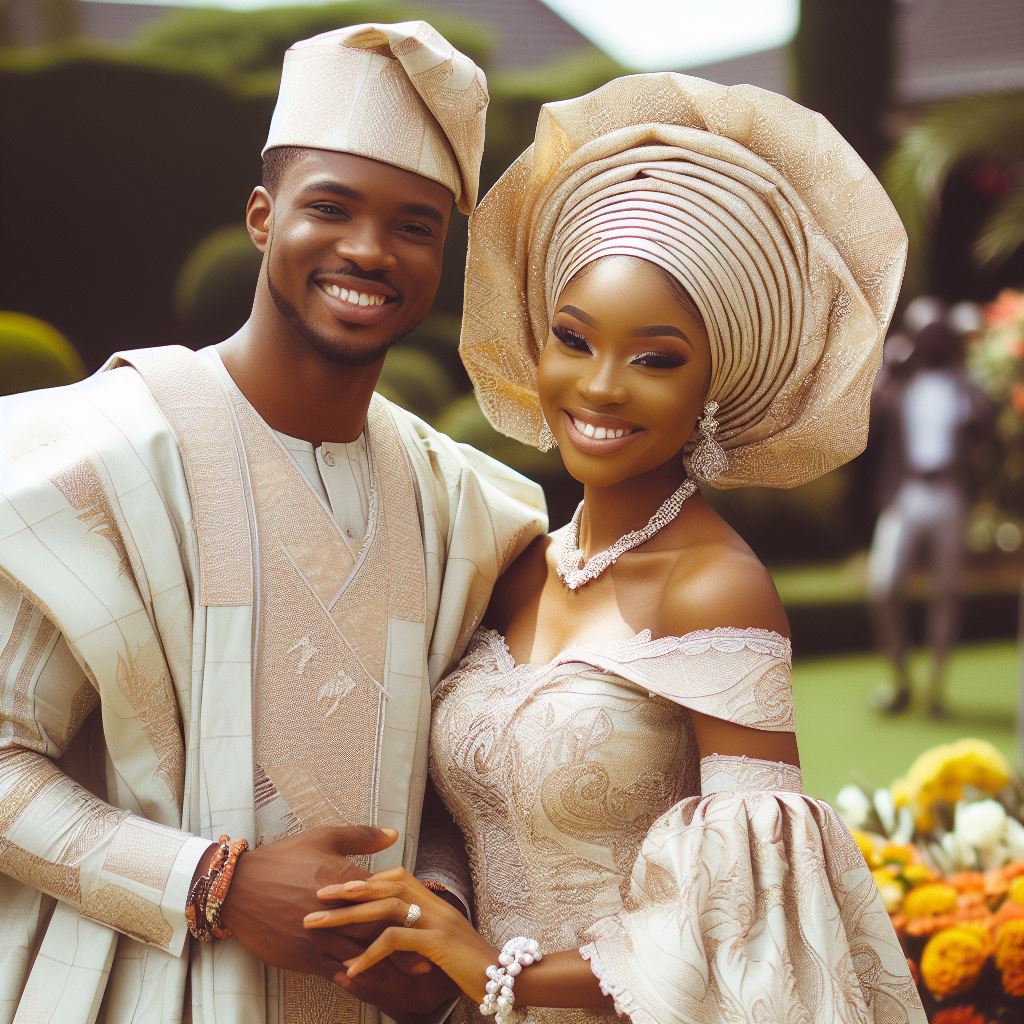
Challenges and Changes in Nigerian Marriage
Marriage in Nigeria, traditionally seen as a sacred union, has witnessed significant challenges and changes in recent times.
These changes can be attributed to various factors such as the influence of Western culture, rising divorce rates, and evolving attitudes towards gender roles.
Shift towards love-based marriages
1. Influence of Western culture on romantic relationships
Western culture, with its emphasis on individualism and freedom of choice, has greatly impacted romantic relationships in Nigeria.
Young Nigerians are increasingly adopting the concept of falling in love before getting married.
This shift towards love-based marriages highlights the growing influence of Western ideals on Nigerian society.
2. Changing attitudes towards arranged marriages
Arranged marriages, once a prevalent practice in Nigeria, are gradually losing their appeal.
A growing number of young Nigerians now reject family-arranged marriages, valuing personal agency and selecting partners based on love and compatibility.
Rising divorce rate in Nigeria
1. Factors contributing to marital instability
Nigeria has witnessed a significant increase in divorce rates in recent years.
Multiple factors contribute to this rise, including economic pressures, infidelity, domestic violence, and incompatible personalities.
These challenges often lead to the breakdown of marriages and the subsequent rise in divorce cases.
2. Impact of modernization and urbanization
Modernization and urbanization have also played a significant role in the rising divorce rate in Nigeria.
Urban areas, with their fast-paced lifestyles and exposure to different cultures, provide individuals with broader perspectives and more options.
This exposure sometimes leads to marriages becoming strained, as the traditional values and expectations clash with modern lifestyles.
Attitudes towards gender roles in marriage
1. Evolution of gender dynamics within Nigerian households
Nigerian households have seen a gradual evolution in gender dynamics within marriages.
Traditionally, men held dominant roles while women mainly focused on domestic duties.
However, with increasing education and financial independence, women are challenging these traditional gender roles.
They are now taking on more active roles outside the home, contributing to household income, and demanding equal respect and decision-making power within marriages.
2. Struggles for gender equality and empowerment within marriages
The struggle for gender equality and empowerment is ongoing within Nigerian marriages.
As women demand more agency and equal rights, they often face resistance from deeply ingrained cultural norms.
Achieving gender equality requires dismantling patriarchal structures and promoting the idea of partnership and mutual respect within marriages.
In essence, Nigerian marriage is experiencing significant challenges and changes.
The shift towards love-based marriages, rising divorce rates, and evolving attitudes towards gender roles highlight the impact of Western culture, modernization, and the struggle for gender equality.
Nigerian society must navigate these changes while preserving the core values and importance of marriage as a lasting union based on love, respect, and mutual understanding.
Read: Why Your Marriage Certificate Matters in Nigeria
Conclusion
Recap of Nigeria’s view on marriage
Marriage in Nigeria is seen as more than just a union between two individuals. It is a bond that extends to families and communities, representing cultural identity and values.
Importance of understanding the cultural significance of marriage in Nigeria
It is crucial to comprehend the cultural significance of marriage in Nigeria to appreciate the country’s traditions and customs surrounding this institution.
This understanding fosters respect and acceptance of diverse cultural practices.
Final thoughts on the evolving nature of marriage in Nigerian society
Marriage in Nigeria is not static but continually evolving. As society changes, so do the expectations and dynamics within marriages.
It is important to recognize these changes and adapt to them to build healthier and more fulfilling relationships.

